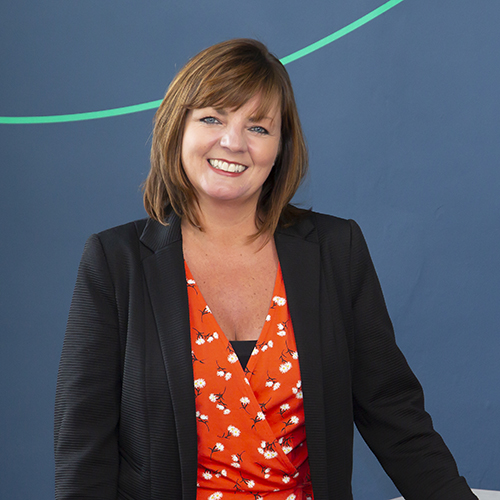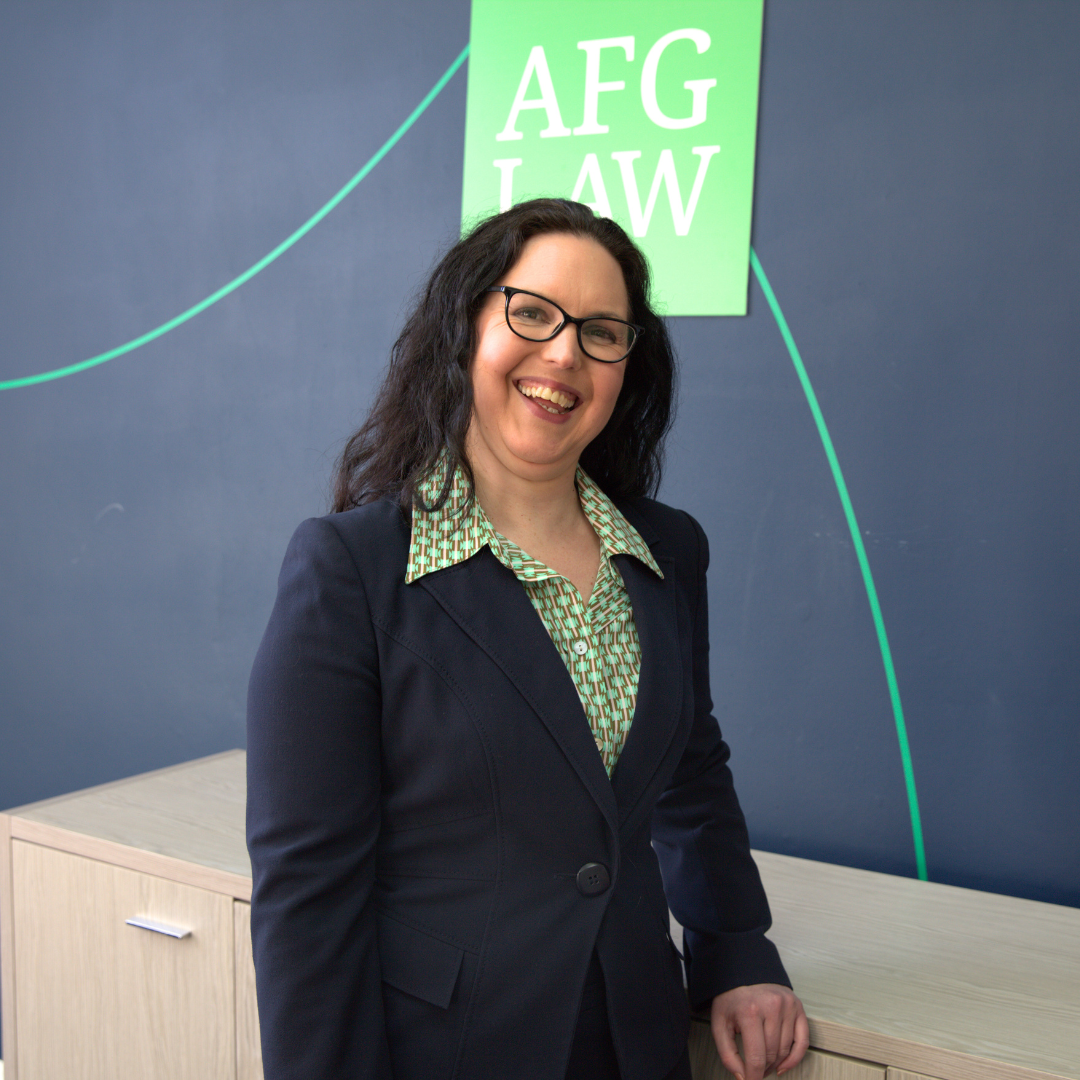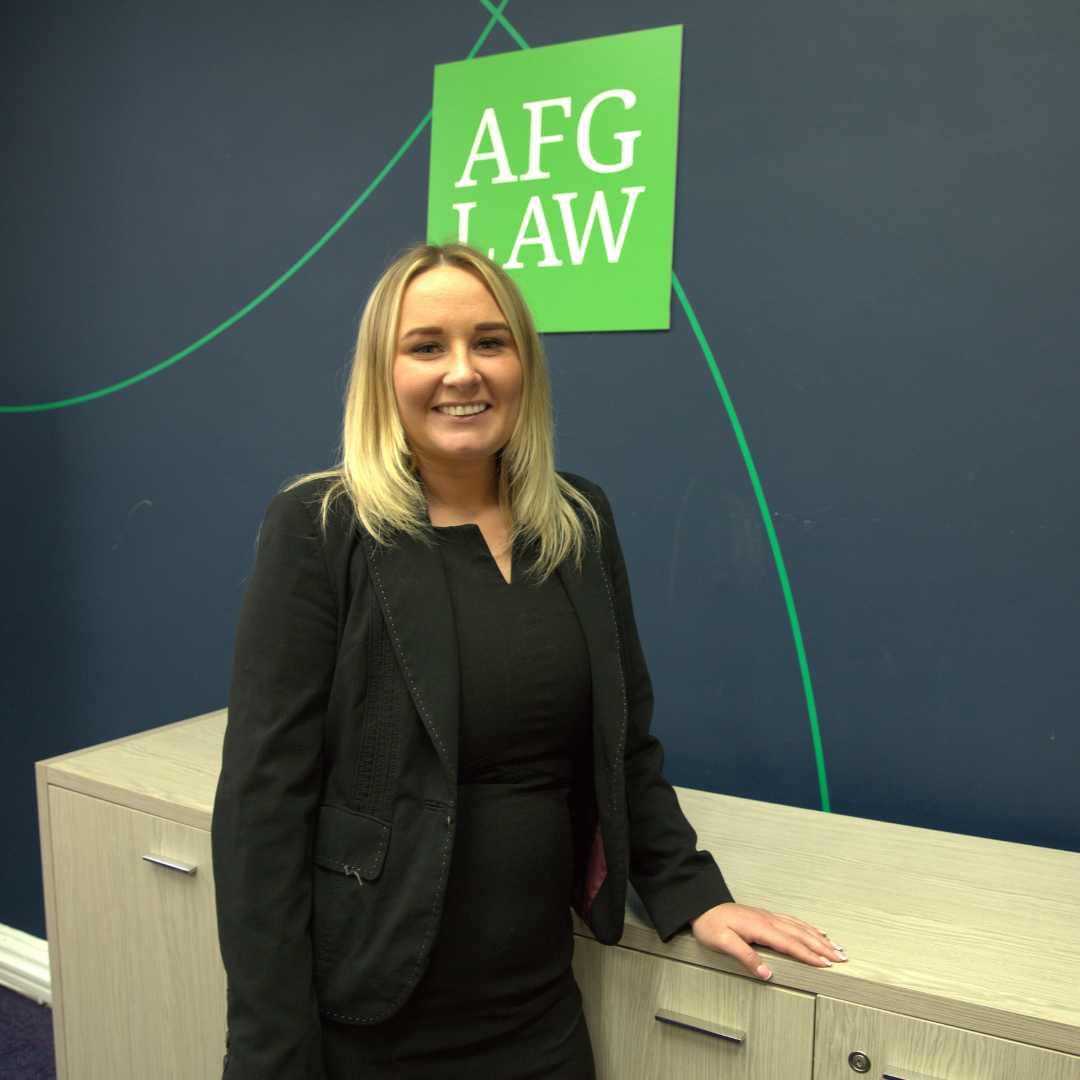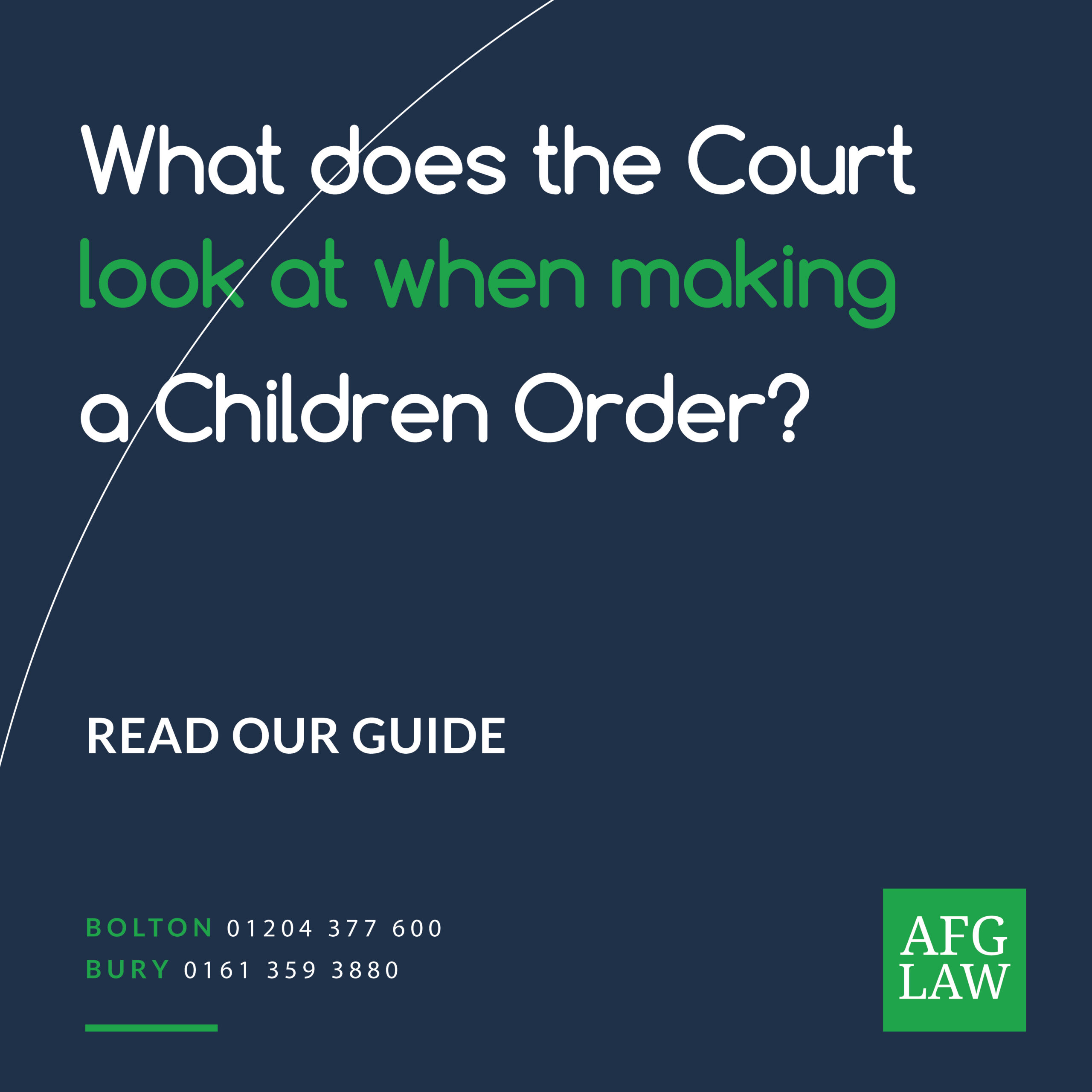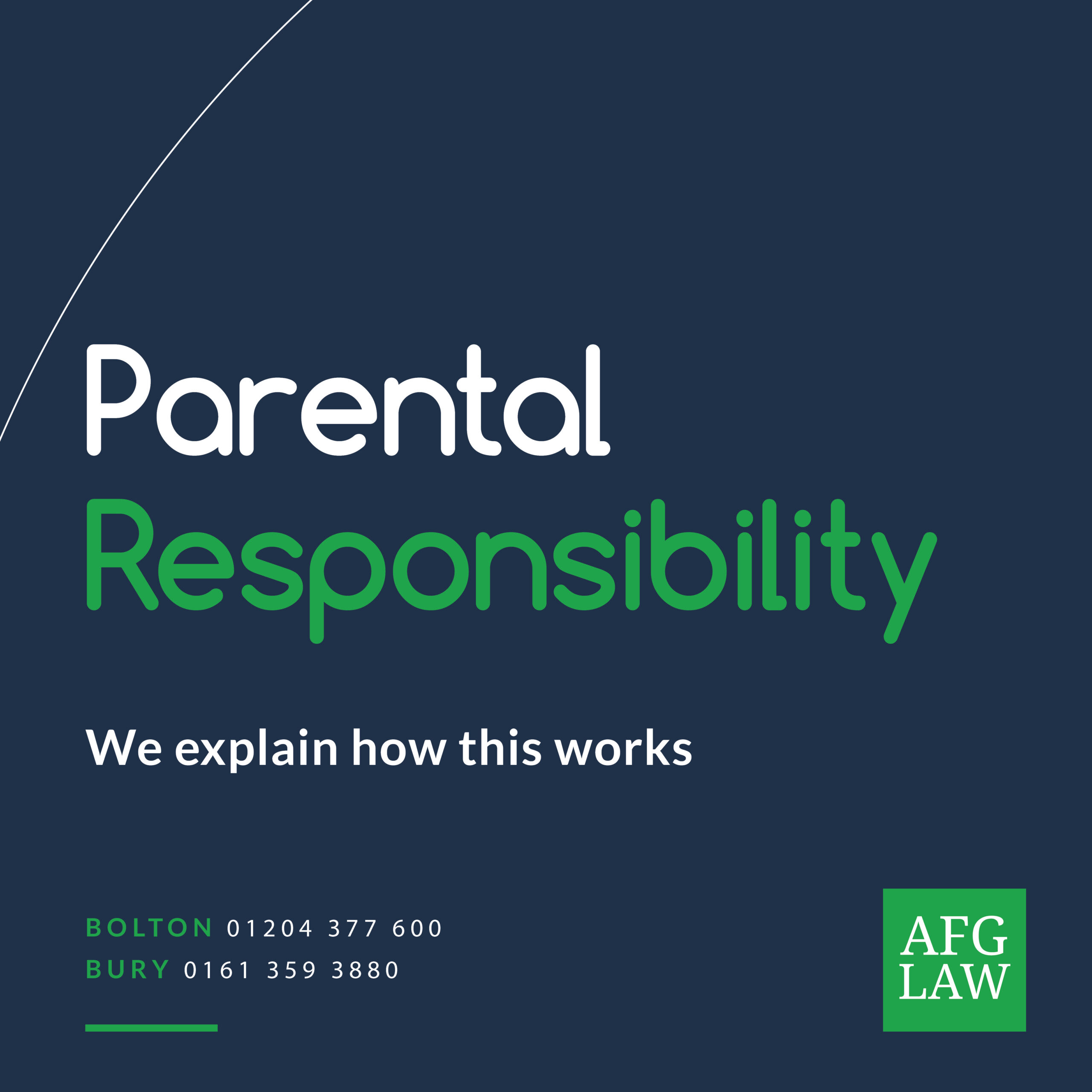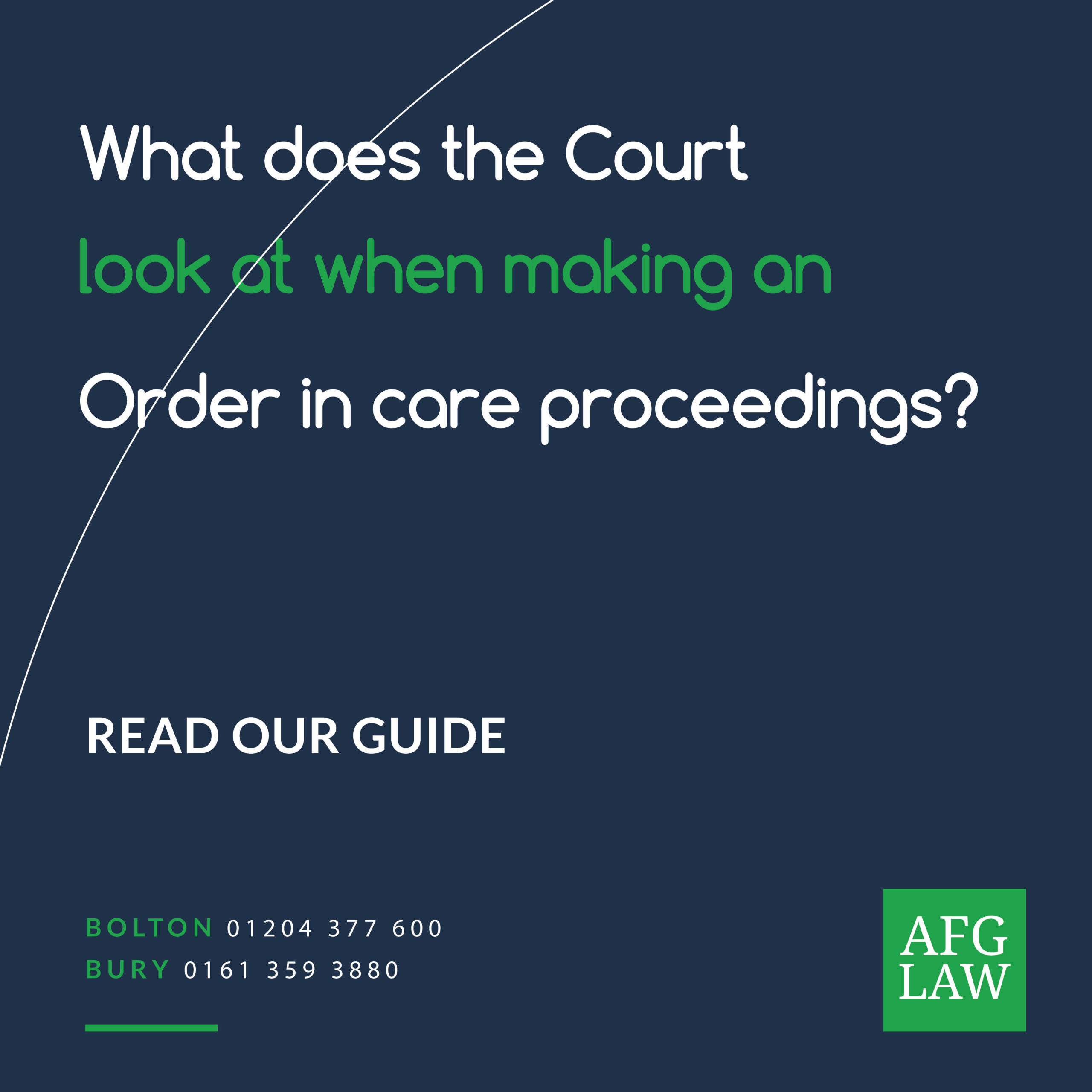At AFG Law our solicitors understand that if you, or a loved one, are experiencing domestic abuse you will also be worrying about the impact on your children.
Our domestic abuse solicitors understand that people often put up with behaviour because they are worried about the impact of leaving a relationship upon their children, just as much as their children’s welfare can be the motivation to leave.
We also understand that parents can be worried about what might happen if they do seek help; will a social worker get involved, will their children be removed, what will happen if the other parent makes an application to see the children and how will the court deal with it?
Domestic abuse and children
The Children Act 1989 defines ‘harm’ as ill-treatment or the impairment of health or development including, for example, impairment suffered from seeing or hearing the ill-treatment of another. This means that if children see or hear a parent being ill-treated it will count as harm, as a parent you need to make sure you are safeguarding your children and protecting them from domestic abuse.
There is always a risk of physical harm if domestic abuse is taking place in the children’s home, but emotional and psychological harm can have long term impacts on mental health and development including on children’s relationships in the future.
The Domestic Abuse Act 2021 has taken the concern about the impact of domestic abuse on children further and has recognised children as ‘victims. The intention is to recognise the impact on children, ensure that children can access services and help social workers identify children affected by domestic abuse and ensure they get support.
We have put together a list of domestic abuse support services, both local and national, but there are also child-specific national support services including through the NSPCC and Women’s Aid online space ‘The Hideout’.
What happens if a social worker becomes involved with my family because of domestic abuse?
Every family situation is different, and our family solicitors will be able to discuss your circumstances with you in confidence. Call us today for an initial chat. CTA
What will happen will depend on how concerned the social worker is about your children’s safety and welfare. The social worker will decide within a day of receiving a referral whether to do an assessment and, if so, what type. The social worker may be able to close the case if the risk has been removed and you have acted in a way to safeguard your child.
If it is more serious, and there has been a history of domestic abuse issues for example, the social worker may want to work with your family and there are different ways in which they might do this including the child in need process, the child protection process, or the pre-proceedings process. Our family solicitors are experienced in giving advice about these different processes and legal aid may be available.
The social worker should try and work with both the parent who perpetrated the domestic abuse and the parent who was the victim. The social worker should be able to suggest work that can be done around domestic abuse for both parents. The social worker can work with the parents separately including during assessments and by holding separate meetings to protect the parent who was the victim.
If a social worker is concerned that there is a risk of immediate harm to your children, then they may decide to start court proceedings. This could be an emergency hearing or care proceedings. It is really important you seek urgent legal advice if you are told the social worker is going to start court proceedings for your children.
What orders can I apply for to protect me and my children from domestic abuse?
Our family solicitors can guide you through the options that might be available to you, but these could include non-molestation orders, occupation orders, prohibited steps orders, specific issue orders and child arrangements orders. These orders can be used in combination to ensure that you and your children are protected.
I have left my partner because of domestic abuse but he has made an application to court to see the children. What will happen?
If your partner has made an application for a child arrangements order, you will have the opportunity to raise your concerns about domestic abuse from the beginning of the court process. Our solicitors can give you advice about how to do this in your response to an application.
CAFCASS will be sent a copy of the application by the court and, prior to the first hearing, will complete safeguarding checks with the police and local authority as well as conducting a telephone interview with both parents. They will put this in a letter which will be sent to the court three days before the hearing, it can also be sent to the parents depending on the contents.
A CAFCASS Family Court Adviser will attend the first hearing and can discuss the content of the safeguarding letter and make recommendations. These recommendations could include completing more detailed work, recommending a finding of fact hearing, asking the court to order the perpetrator to take part in a domestic abuse perpetrator programme.
When the court is being asked to consider the arrangements for children the child’s welfare is the court’s main consideration. The court will consider the ‘welfare checklist’ when it is trying to determine what is in the children’s best interests. This includes the following:
- The ascertainable wishes and feelings of the child concerned (considered in the light of his/her age and understanding);
- His/her physical, emotional and educational needs
- The likely effect on him/her of any change in circumstances
- The age, sex, background and any other characteristics which the court considers relevant
- Any harm which the child has suffered or is at risk of suffering
- How capable each of his parents, and any other person in relation to whom the court considers the question to be relevant, is of meeting the child’s needs
- The range of powers available to the court under this Act in the proceedings in question
When the court is asked to determine arrangements for children when allegations of domestic abuse have been made the court has to consider Practice Direction 12J Child Arrangements & Contact Orders: Domestic Abuse and Harm. This sets out guidance to be followed throughout the court process from before the First Hearing and Dispute Resolution Appointment to a fact-finding hearing and what to consider when making a child arrangements order.
The court must ensure that any order for contact will not expose the child to unmanageable risk of harm and will be in the best interests of the child. If domestic abuse is established, after the court has heard evidence or there has been an admission, then the court should apply the above welfare checklist with reference to the domestic abuse which has occurred, and any risk assessment obtained.
In every case the court should consider any harm which the child, as a victim of domestic abuse, and the resident parent has suffered because of the abuse and which either of them is at risk of suffering if a child arrangements order is made. The court should only make an order for contact if it is satisfied that the physical and emotional safety of the child and the parent with whom the child is living can, as far as possible, be secured before, during and after contact and that the victim of the abuse will not be subject to further domestic abuse.
When domestic abuse has been found to have happened the Judge will also consider the way the parents have behaved towards each other, the child, and the impact this has had. The court has to consider the effect of the domestic abuse on the child, the effect on where the child is living, the child’s relationship with both parents, whether the parent is motivated by a desire to promote the best interests of the child or whether they are using the process to continue the domestic abuse, likely behaviour during contact and the capacity of the parents to appreciate the effect of past domestic abuse and future potential incidents.
Our domestic abuse and children law solicitors have the experience and training to be able to guide you through this process and support you each step of the way. If you are worried about child arrangement court proceedings and domestic abuse, contact our friendly solicitors for a confidential chat.
